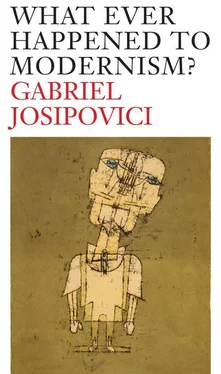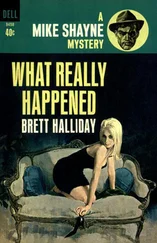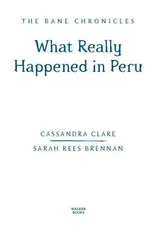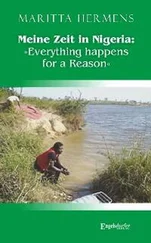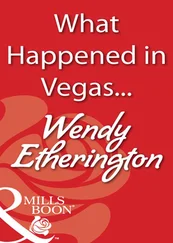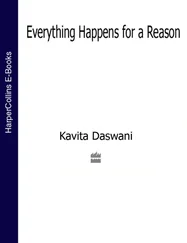Heavy and wan, all whitened by the Moon,
Which through that veil is indistinctly seen,
A dull, contracted circle, yielding light
So feebly spread that not a shadow falls…
But suddenly there is a double change: in the landscape being depicted and in our sense of where the focus of the poem lies. The two are connected:
At length a pleasant instantaneous gleam
Startles the pensive traveller while he treads
His lonesome path, with unobserving eye
Bent earthwards; he looks up — the clouds are split
Asunder, — and above his head he sees
The clear Moon, and the glory of the heavens.
There in a blue-black vault she sails along,
Followed by multitudes of stars, that, small
And sharp, and bright, along the dark abyss
Drive as she drives: how fast they wheel away,
Yet vanish not! — the wind is in the tree,
But they are silent; — still they roll along
Immeasurably distant; and the vault,
Built round by those white clouds, enormous clouds,
Still deepens its unfathomable depth.
The emergence of the moon from the clouds seems to conjure up the traveller, to us and even to himself, as though till that moment he had been walking without any awareness of himself and his surroundings, locked in his own thoughts, ‘pensive’, ‘unobserving’, in a sense ‘not there’. But the sudden emergence of the moon makes him look up and the poem itself suddenly takes off from the flat, almost prose-like opening, into something powerful and grand, as the impact of the scene he now looks at in the sky calls forth (in recollection) a language which strives, successfully, to be commensurate with it. In one great sentence Wordsworth does what he does best, uses syntax to convey the unfolding of something majestic and beyond thought. Yet the majesty never turns into what the eighteenth century called ‘the sublime’, the vague and awesome; it achieves its own sublimity, rather, by remaining focused — the beautiful touch ‘the wind is in the tree ’, not ‘in the trees ’, and the powerful contrast between the sound of the wind and the silence of the stars, whose immeasurable distance from us is conveyed with effortless economy. The repetition of ‘clouds’ reminds us that the focus of the poem is the traveller, whose perceptions exist in time, not the sky, which is eternal. This is a poem about experiencing a vision, not, like Blake's prophecies, about a vision:
still they roll along Immeasurably distant; and the vault,
Built round by those white clouds, enormous clouds,
Still deepens its unfathomable depth.
But the poem does not end there. It is important, indeed central, to it that we experience, with the traveller, both the onset of the vision and its end:
At length the Vision closes; and the mind,
Not undisturbed by the delight it feels,
Which slowly settles into peaceful calm,
Is left to muse upon the solemn scene.
There the poet wisely leaves it to us to decide what form such musings take. Though for Wordsworth the scene may be ‘solemn’, what it brings to the viewer is ‘delight’ settling slowly into ‘peaceful calm’. And we realise that what we are reading is the reconstruction, later, of the experience, the experience being both the content of the poem before us and its trigger. For the traveller at the start would not have wanted or been able to write, closed in upon himself as he was. Only the parting of the clouds, the vision of the moon, making the bent traveller straighten and look up, leads us to the present, the poem we are now reading.
However, nature is not always the source of serenity and joy. The most powerful passages in the first books of The Prelude concern an altogether more frightening image of nature. Once, having stolen a woodcock from a snare set by someone else,
I heard among the solitary hills
Low breathings coming after me, and sounds
Of undistinguishable motion, steps
Almost as silent as the turf they trod. (I.321–4)
Another time, rowing out into the middle of a little-known lake from a boat he had untethered from its mooring place, he has the nightmarish feeling of something rising up from the horizon and coming after him faster than he can row:
a huge peak, black and huge
As if with voluntary power instinct,
Upreared its head. I struck, and struck again,
And growing still in stature the huge cliff
Towered up between me and the stars, and …
…like a living thing,
Strode after me. (I. 378–85)
We could say that in both instances Wordsworth has simply given concrete shape to his feelings of guilt at having done something morally wrong. But that would be to misunderstand what is going on. What both instances do is to dramatise his sense of feeling a stranger in the landscape and of somehow inflicting harm on it precisely because he is a stranger, an intruder. No poem expresses this better than another of the little poems he wrote in 1798/9, ‘Nutting’.
This time he sets out on a perfect day, ‘One of those heavenly days that cannot die’, a bag on his back, a nutting crook in his hand. Forcing his way through brambles and matted ferns he comes at last to
one dear nook
Unvisited, where not a broken bough
Drooped with its withered leaves, ungracious sign
Of devastation…
It was, he says, ‘a virgin scene’. This he stands surveying for a while, ‘Breathing with such suppression of the heart/As joy delights in’. He sits down beneath the trees and feels like those who, ‘after long/And weary expectation, have been blest/With sudden happiness beyond all hope’. What brings this joy is the sense of the spot never having been seen before by human eye and its being a place where the human voice has never been heard, a place ‘Where fairy water-breaks do murmur on/For ever’; and, as so often, it is the sound of water running deep in the earth that rouses his deepest feelings:
And — with my cheek on one of those green stones
That, fleeced with moss, under the shady trees,
Lay round me, scattered like a flock of sheep –
I heard the murmur and the murmuring sound.
But then — and typically Wordsworth does not try to explain the action, only record it with puzzled honesty — he rises up and in a fit of vandalism proceeds to destroy this earthly paradise, dragging down the boughs and tearing at the nuts upon them: ‘and the green and mossy bower,/Deformed and sullied, patiently gave up/Their quiet being’. The child he was, he now recalls, turns from the ‘mutilated bower’, exulting in his new-found riches, and then feels ‘a sense of pain when I beheld/ The silent trees, and saw the intruding sky’. The very quietness of the spot, which had been one of its sources of power, that which had allowed him to hear the revivifying murmur of the waters, is what he has destroyed, the silence turning now into a mute accusation, almost a sense of shame as the sheltered nook is opened up to the sky through his destructive act.
The poem is so shocking because we sense that it is not so much the act of violence which is seen as a rape of nature as the very presence of the child; the act merely dramatises what had been latent all along, just as Rabelais and Cervantes had merely brought out into the open the fact that a book is always written by a fallible human being. Indeed, with hindsight we could go further and say that for the two earlier writers as, later, for Kafka, the act of writing was itself seen as a kind of violation of the world, and had to be recognised as such. The paradox for Wordsworth is that only in the midst of nature does he feel fully himself, as in some sense he was created to be, and yet his very presence in nature robs it of precisely that which made it such a source of healing and joy. Is there a way of interacting with nature which is not destructive?
Читать дальше
